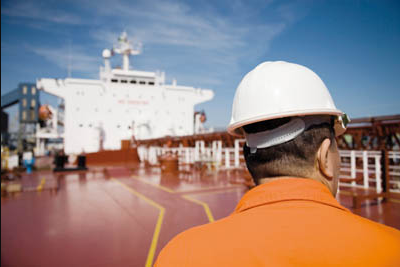The Maritime Labour Convention, 2006 (“MLC, 2006”) establishes minimum working and living standards for all seafarers working on ships flying the flags of ratifying countries. It’s also an essential step forward in ensuring a level-playing field for countries and shipowners who, until now, have paid the price of being undercut by those who operate substandard ships.
Widely known as the “seafarers’ bill of rights,” the MLC, 2006 was adopted by government, employer and workers representatives at a special ILO International Labour Conference in February 2006.
It is unique in that it aims both to achieve decent work for seafarers and to secure economic interests through fair competition for quality ship owners.
The Convention is comprehensive and sets out, in one place, seafarers’ rights to decent working conditions. It covers almost every aspect of their work and life on board including:
minimum age
seafarers’ employment agreements
hours of work or rest
payment of wages
paid annual leave
repatriation at the end of contract
onboard medical care
the use of licensed private recruitment and placement services
accommodation, food and catering
health and safety protection and accident prevention and
seafarers’ complaint handling
The Convention was designed to be applicable globally, easy to understand, readily updatable and uniformly enforced and will become the “fourth pillar” of the international regulatory regime for quality shipping, complementing the key Conventions of the International Maritime Organization (IMO) dealing with safety and security of ships and protection of the marine environment.
MLC 2006 is important because it brings together, in one place, international minimum standards that ensure decent work for the estimated more than 1.5 million seafarers around the world whose work is essential to international trade as well as to an increasingly important form of tourism and recreational activity. Under the MLC, 2006 every seafarer has the right to:
a safe and secure workplace that complies with safety standards
fair terms of employment
decent working and living conditions on board ship
health protection, medical care, welfare measures and other forms of social protection
The Convention is also important because it will help to provide a level playing field for quality ship owners operating under the flag of countries that have ratified the MLC, 2006. The goal is to ensure that decent working conditions go hand in hand with fair competition.
MLC 2006 shows how tripartite dialogue and international cooperation can operate constructively for the most globalized of industries, by concretely addressing the challenges to securing decent working and living conditions for seafarers, while simultaneously helping to ensure fair competition for ship owners.
Copyright Ships & Ports Ltd. Permission to use quotations from this article is granted subject to appropriate credit given to www.shipsandports.com.ng as the source.
